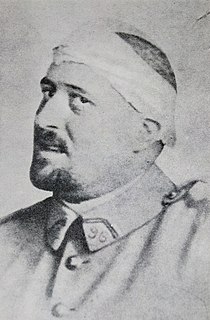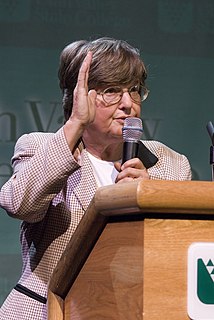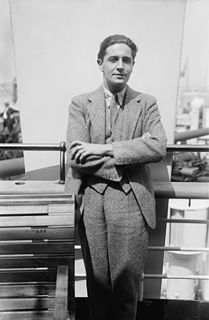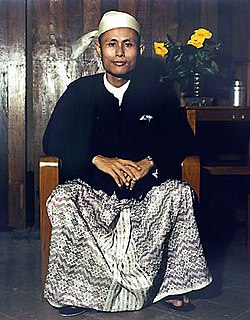A Quote by Frank Lloyd Wright
Architectural features of true democratic ground-freedom would rise naturally from topography, which means that buildings would all take on the nature and character of the ground on which in endless variety they would stand and be component part.
Related Quotes
Be the first to seize intersecting ground, that is ground which lies the intersections of borders or intersections of main thoroughfares of commerce and travel. Your occupation of it gives you access to all who border it and all who would covet it. On intersecting ground, if you establish alliances you are safe, if you lose alliances you are in peril.
Without poets, without artists, men would soon weary of nature's monotony. The sublime idea men have of the universe would collapse with dizzying speed. The order which we find in nature, and which is only an effect of art, would at once vanish. Everything would break up in chaos. There would be no seasons, no civilization, no thought, no humanity; even life would give way, and the impotent void would reign everywhere.
In sorting out my feelings and beliefs, there is, however, one piece of moral ground of which I am absolutely certain: if I were to be murdered I would not want my murderer executed. I would not want my death avenged. Especially by government--which can't be trusted to control its own bureaucrats or collect taxes equitably or fill a pothole, much less decide which of its citizens to kill.
Philosophy would long ago have reached a high level if our predecessors and fathers had put this into practice; and we would not waste time on the primary difficulties, which appear now as severe as in the first centuries which noticed them. We would have the experience of assured phenomena, which would serve as principles for a solid reasoning; truth would not be so deeply sunken; nature would have taken off most of her envelopes; one would see the marvels she contains in all her individuals.
But it is just this characteristic of simplicity in the laws of nature hitherto discovered which it would be fallacious to generalize, for it is obvious that simplicity has been a part cause of their discovery, and can, therefore, give no ground for the supposition that other undiscovered laws are equally simple.
There are simple things which would make sense. Take, say, weatherization, which would make a big cut in the unemployment rate. That's the kind of work that plenty of people are quick to do, and it would save individual households money, and it would make a significant reduction in the threats of climate change. But something is holding it back: the sociopathic character of market systems.
On dispersive ground, therefore, fight not. On facile ground, halt not. On contentious ground, attack not. On open ground, do not try to block the enemy's way. On the ground of intersecting highways, join hands with your allies. On serious ground, gather in plunder. In difficult ground, keep steadily on the march. On hemmed-in ground, resort to stratagem. On desperate ground, fight.
It by no means follows, that because two men utter the same words, they have precisely the same idea which they mean to express: language is inadequate to the variety of ideas which are conceived by different minds, and which, could they be expressed, would produce a new variety of characteristic differences between man and man.







































